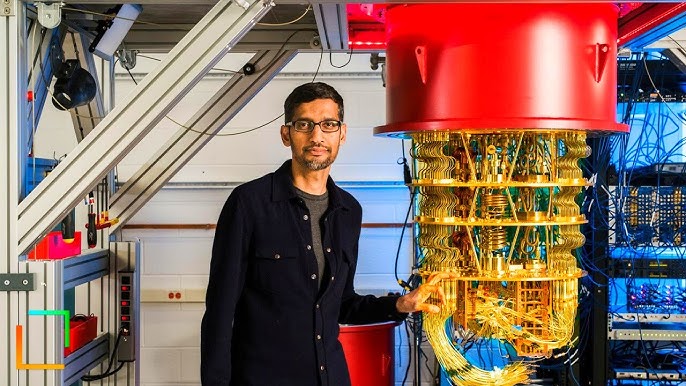
Google’s Supercomputer: A Leap Towards a Million Calculations Per Second
Why Supercomputers Matter
Supercomputers are specialized machines designed to handle massive amounts of data and perform complex calculations at incredible speeds. They play a critical role in various fields, including climate modeling, drug discovery, cryptography, and artificial intelligence. Unlike traditional computers, which can struggle with intensive tasks, supercomputers can process and analyze enormous datasets in real time, enabling breakthroughs that were previously unimaginable.
Google’s Vision: Unprecedented Speed and Efficiency
Google’s new supercomputer aims to reach speeds that can perform up to one million calculations per second. This would mark a significant leap from existing computing standards. The goal is to create a machine that is not only faster but also more efficient and scalable. Google’s focus on this project is part of its broader vision to enhance computational capabilities, supporting advancements in machine learning, quantum computing, and other cutting-edge technologies.
To achieve this, Google is leveraging its expertise in AI and quantum computing. Their supercomputer will likely incorporate advanced processors and custom-built components, optimizing performance and power consumption. This makes it an ideal platform for tasks that demand high computational power, such as training large language models, simulating complex biological processes, or even exploring space data.
Key Technologies Behind the Supercomputer
Google’s approach to building this supercomputer is grounded in several core technologies:
Quantum Computing: Quantum computing has the potential to process data in ways that traditional computing cannot. By utilizing quantum bits (qubits) instead of binary bits, quantum computers can solve complex problems more quickly and efficiently. Google’s supercomputer may integrate aspects of quantum computing to handle specific tasks, boosting its overall capabilities.
Artificial Intelligence & Machine Learning: Machine learning algorithms thrive on processing massive datasets, which often requires immense computing power. Google’s supercomputer will likely be equipped with AI-optimized hardware that enhances the efficiency of these processes. This can drastically reduce the time needed to train large models, leading to faster and more accurate outcomes.
Custom Hardware Solutions: To reach the desired speed of a million calculations per second, Google is developing custom processors and chipsets. These components will be designed to optimize data flow, minimize bottlenecks, and ensure energy efficiency. This emphasis on bespoke hardware demonstrates Google’s commitment to pushing the limits of what current technology can achieve.
Implications for Various Sectors
A supercomputer of this magnitude can transform industries across the board:
- Healthcare: Faster computation speeds can lead to quicker drug discovery, better diagnostic tools, and more efficient analysis of genetic data.
- Climate Science: Supercomputers can simulate and analyze climate models, helping scientists better understand and predict changes in the Earth’s climate.
- Finance: Financial institutions can use advanced computing to enhance risk analysis, fraud detection, and automated trading systems.
- Space Exploration: Processing vast amounts of data from space probes, satellites, and telescopes requires significant computational power. Google’s supercomputer could accelerate space research, making new discoveries possible.
The Future of Computing
Google’s development of a supercomputer capable of a million calculations per second is a bold step toward the future of technology. As our world becomes more data-driven, the need for faster, more powerful computers will only grow. This innovation could pave the way for even more advanced computing solutions, reshaping industries and solving complex problems faster than ever before.
Ultimately, Google’s ambitious project reflects a broader trend in the tech industry: the relentless pursuit of speed, efficiency, and innovation. With this new supercomputer, we’re looking at a future where the impossible becomes possible, one calculation at a time.